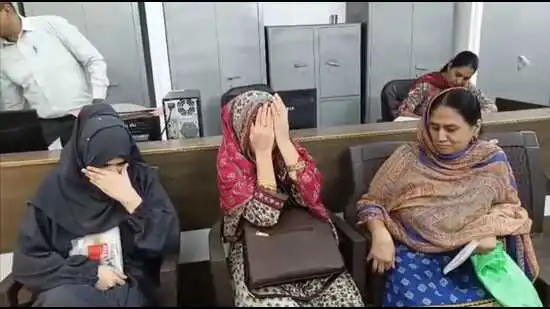1800 Pakistani Nationals in Uttar Pradesh Asked to Return Home

1800 Pakistani Nationals in U.P. Ordered to Return to Pakistan
In a significant move, Indian authorities have directed approximately 1,800 Pakistani nationals residing in Uttar Pradesh (U.P.) to return to Pakistan. This decision follows an extensive review that revealed many of them had overstayed their visas—some for decades—without legalizing their residency or applying for Indian citizenship.
The directive comes from the Ministry of Home Affairs (MHA), which has been reviewing the status of individuals on long-term visas (LTVs). These residents were initially allowed to stay in India under special circumstances, often for family or humanitarian reasons.
Background: Why These Pakistani Nationals Are in U.P.
Many of the individuals involved migrated to India decades ago, often joining Indian spouses or family members. Some belong to religious groups such as Hindus and Christians who left Pakistan due to social and religious persecution. Others moved for personal or medical reasons and were granted long-term visas by Indian authorities.
However, over the years, several have not updated their documentation or applied for Indian citizenship, despite being eligible under existing laws. This failure to comply has raised concerns among authorities about irregular immigration patterns.
What the Ministry of Home Affairs Said
The Ministry of Home Affairs has instructed the Uttar Pradesh government to identify all Pakistani nationals without valid documents and facilitate their return to Pakistan unless they have pending citizenship applications or renewed visas.
An official stated:
“The directive is part of a larger policy to ensure proper documentation and legal compliance by all foreign nationals. Overstaying a visa without following due process is a violation of Indian law.”
Key Districts Where They Reside
The Pakistani nationals ordered to return home are primarily living in these districts of U.P.:
- Meerut
- Muzaffarnagar
- Rampur
- Saharanpur
- Moradabad
- Lucknow
- Bareilly
These individuals have lived in India for many years, and some have even raised families. Yet, their legal status remains unresolved, prompting this government action.
Notices Issued Earlier
Previously, Indian authorities had issued multiple notices encouraging these individuals to apply for Indian citizenship under the Citizenship Act of 1955. Despite this, few responded, and many continued staying without proper documentation.
A senior official explained:
“There is no bias or targeting involved. The government has provided several opportunities. But continued non-compliance cannot be allowed.”
Legal Options Available
For Pakistani nationals in U.P. wishing to stay in India, the following legal avenues remain open:
- Apply for Indian Citizenship – If eligible, particularly for those married to Indian citizens or belonging to specified religious groups.
- Request an Extension – In special cases involving health or family matters.
- Voluntarily Return to Pakistan – As directed by the authorities.
The Indian government encourages all individuals to use legal channels and comply with visa regulations.
Concerns Among Affected Families
Many affected individuals have lived in India for over 20 or 30 years. They consider India their home. Several are older people, with deep social and emotional ties to their communities.
One woman from Muzaffarnagar, whose mother moved from Pakistan in the early 1990s, said:
“My mother has lived here for most of her adult life. She speaks fluent Hindi and has never caused any problems. Sending her back now feels unjust.”
Social workers and community leaders have also raised concerns about the human impact of this move, especially on older residents and families with children born in India.
Security and Policy Perspective
From the government’s viewpoint, the move is not just about legal status, but also about national security and regulatory clarity. By tightening immigration control and encouraging documentation, India aims to prevent misuse of its visa system and reduce long-term irregular migration.
This aligns with broader national goals, including:
- Strengthening internal security
- Improving demographic records
- Encouraging legal pathways to citizenship
Final Deadline and Compliance
Though a specific deadline has not been made public, authorities are expected to begin implementing the directive in the coming months. Residents who receive notices are being urged to act swiftly—either by applying for Indian citizenship if they qualify, or by preparing to return to Pakistan.
Conclusion
The decision to ask 1,800 Pakistani nationals in Uttar Pradesh to return home marks a serious shift in India’s immigration policy enforcement. While the directive is grounded in legal norms, it also poses emotional and logistical challenges for individuals who have lived in India for decades.
Affected residents are encouraged to explore legal options immediately and comply with the rules to avoid forced deportation.
Outbound Resource:
For detailed guidelines on applying for Indian citizenship, visit the official Indian Citizenship Portal.






